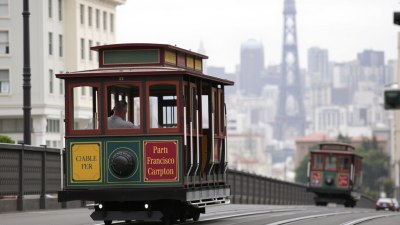Why Traveling With Kids Will Make You See the World Differently
Exploring travel with children changes perspectives, enhancing experiences and creating lifelong memories. Learn how families bond through adventures.

Image by prostooleh on Freepik
Traveling is a transformative experience, but it takes on a completely different meaning when you do it with kids. The world becomes a vibrant playground, and every corner offers a lesson or an adventure. Parents often find that traveling with children not only enriches their experiences but also alters their own perspectives. Whether it’s through shared moments, challenges, or discoveries, family travel fosters a bond that reshapes your worldview. In this article, we’ll explore how traveling with kids transforms the way you see the world.
The Joy of Discovery
One of the most significant changes you experience when traveling with children is witnessing the joy of discovery through their eyes. Adults often become jaded, viewing landmarks and attractions as mere sites. However, children approach the world with unbridled enthusiasm and curiosity. A simple beach becomes an oasis of sandcastle possibilities, a museum transforms into a treasure hunt, and even a city park can be transformed into a world of imagination. The myriad of reactions kids have can reignite the sense of wonder you may have lost as an adult. Their spontaneous laughter and wonder help remind you to appreciate the little things.
Learning Opportunities
Traveling offers countless educational opportunities that are invaluable for children and adults alike. When on the road, children absorb lessons in geography, history, culture, and social skills. Visiting historical sites can turn a mundane lesson in history into an exciting adventure. Real-time experiences solidify knowledge in a way that classrooms often can't. Local cuisine opens the door to new tastes and cultures, and interactions with diverse communities offer vital social education. Traveling as a family transforms mundane discussions about various cultures into lived experiences, creating memorable connections.
Building Lifelong Memories
Every trip, whether big or small, creates cherished family memories. Whether it's a thrilling roller coaster ride, a quiet moment watching the sunset, or overcoming a travel hiccup together, each adventure develops a special bond. These shared experiences become the family stories that you recount for years. Kids often remember trips long after they're over, and these memories strengthen familial bonds. As they grow, they'll recall challenging hikes, silly incidents, or exotic foods they tried, fostering a sense of nostalgia and belonging. The connections created during travel can serve as a backdrop against which family members navigate life's ups and downs.
Encouraging Adaptability
Traveling with kids often introduces unpredictability into your plans. Flights can be delayed, reservations can be lost, and children may not always want to do what’s on the itinerary. Navigating these challenges teaches children adaptability and flexibility, critical life skills. Parents learn to go with the flow, embracing spontaneous detours and unexpected surprises. In turn, children observe problem-solving and patience, ultimately preparing them for future challenges. These encounters become lessons that help shape resilient individuals who can adapt to life's unpredictable nature.
Fostering a Sense of Responsibility
Traveling as a family can instill a sense of responsibility in children. Engaging them in planning, packing, and daily activities promotes accountability. Kids can help research destinations, understand travel logistics, or even maintain a travel journal. Assisting with planning allows kids to have a vested interest in the journey, making it more meaningful. This hands-on approach imparts essential skills like organization and consideration for others, fostering their maturity.
Embracing Cultural Diversity
One of the most rewarding aspects of traveling with children is exposure to diverse cultures. Each destination provides the opportunity to engage with different ways of life, from local customs to traditional foods. Learning about different cultures fosters empathy and broadens their worldviews. Understanding that people can have vastly different lifestyles helps children appreciate the richness and diversity of the human experience. Sharing experiences, such as trying new foods or participating in local festivals, cultivates open-mindedness and respect for cultural differences.
Strengthening Family Bonds
Traveling together creates shared challenges and adventures that can bolster family bonds. Whether navigating an airport, hiking a challenging trail, or exploring a foreign market, you’ll face experiences that encourage teamwork. These moments of collaboration and communication strengthen family relationships. Time away from everyday distractions allows for deeper connections. Without the interference of technology or day-to-day responsibilities, family moments during travel create the opportunity for meaningful conversations, shared laughs, and mutual support.
Pushing Comfort Zones
Traveling to new places often requires stepping outside of comfort zones for both kids and adults. Trying new foods, engaging with strangers, or participating in unfamiliar activities challenges fears and uncertainties. This can be especially true for young travelers who may be shy sometimes or resistant to trying new things. Pushing them to experience different activities teaches courage and builds confidence. Parents, too, may face their own fears while encouraging their children, fostering a sense of adventure and exploration that transcends the trip.
Creating Environmental Awareness
Traveling can also enhance awareness of environmental issues. Exposure to beautiful landscapes, wildlife, and varying ecosystems cultivates a sense of responsibility towards the planet. Parents can encourage conversations about sustainability, conservation, and the importance of protecting natural habitats. Visits to national parks or nature reserves often provide hands-on experiences that reinforce these lessons. Understanding the interconnectedness of the environment encourages children to be more conscious of their actions, both while traveling and at home.
Incepting a Love for Travel
Early exposure to travel frequently instills a passion for exploration in children. Traveling as a family can create lifelong travelers who appreciate different cultures, landscapes, and experiences. These positive memories associated with travel can motivate children to seek out adventure later in life. By traveling with children, parents are essentially nurturing curiosity and adventure in their offspring, encouraging a lifetime interest in learning about new places and cultures.
Communication and Conflict Resolution
The challenges that arise during travel often necessitate effective communication and conflict resolution. Children learn how to share their feelings, debate their desires, and resolve disagreements with family members. This process teaches essential skills like negotiating, empathizing, and listening to different perspectives. Parents, too, learn to approach conversations thoughtfully while maintaining respect for their child's voice. Such experiences foster family unity, as approaches to challenges become opportunities for dialogue rather than frustration.
Documenting the Journey
Travel offers a great opportunity to document experiences, whether through photographs, journals, or scrapbooks. Encouraging kids to keep a travel log allows them to reflect on their experiences, later serving as cherished reminders. This practice not only hones writing and observation skills but also allows children to process what they’ve learned. Looking back on these memories creates nostalgia, rekindling the feelings associated with different places and experiences. Parents can also document their journeys, creating a fun family archive that tells a story of adventures together.
Making Friends Wherever You Go
Traveling often opens doors to new friendships. Kids can meet other children at parks, hotels, and during tours. Interacting with children from different backgrounds teaches them social skills and aids in understanding cultural differences. These short-lived friendships can become lasting connections if maintained through technology. Forming bonds while traveling makes the world feel smaller, fostering a sense of global citizenship. Parents can also benefit from interactions with fellow travelers, sharing experiences and exchanges that enrich their perspective.
Reflection and Growth
Travel provides ample opportunities for reflection and personal growth. Children can assess new experiences, discussing their thoughts and feelings about what they have encountered. This reflection process is essential for critical thinking and self-discovery. Parents are also reminded to reflect on their own growth, values, and experiences. When combined, these reflections create a deeper understanding of oneself and elevate family dynamics. Families often discover new strengths and joys they previously overlooked.
Traveling with kids undoubtedly changes the way you see the world. From learning and adapting to creating lasting memories and connections, family travel enhances the experience for everyone involved. Children remind us to embrace the joy of discovery and to appreciate the beauty found in unfamiliar experiences. As a result, traveling with kids fosters growth, strengthens bonds, and nurtures lifelong memories. Whatever your destination—whether it’s a nearby city or a far-off country—the journey will be enriched by the presence of your children, adding layers of joy, discovery, and understanding.











